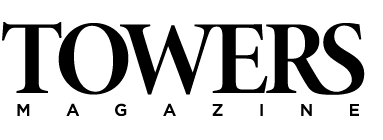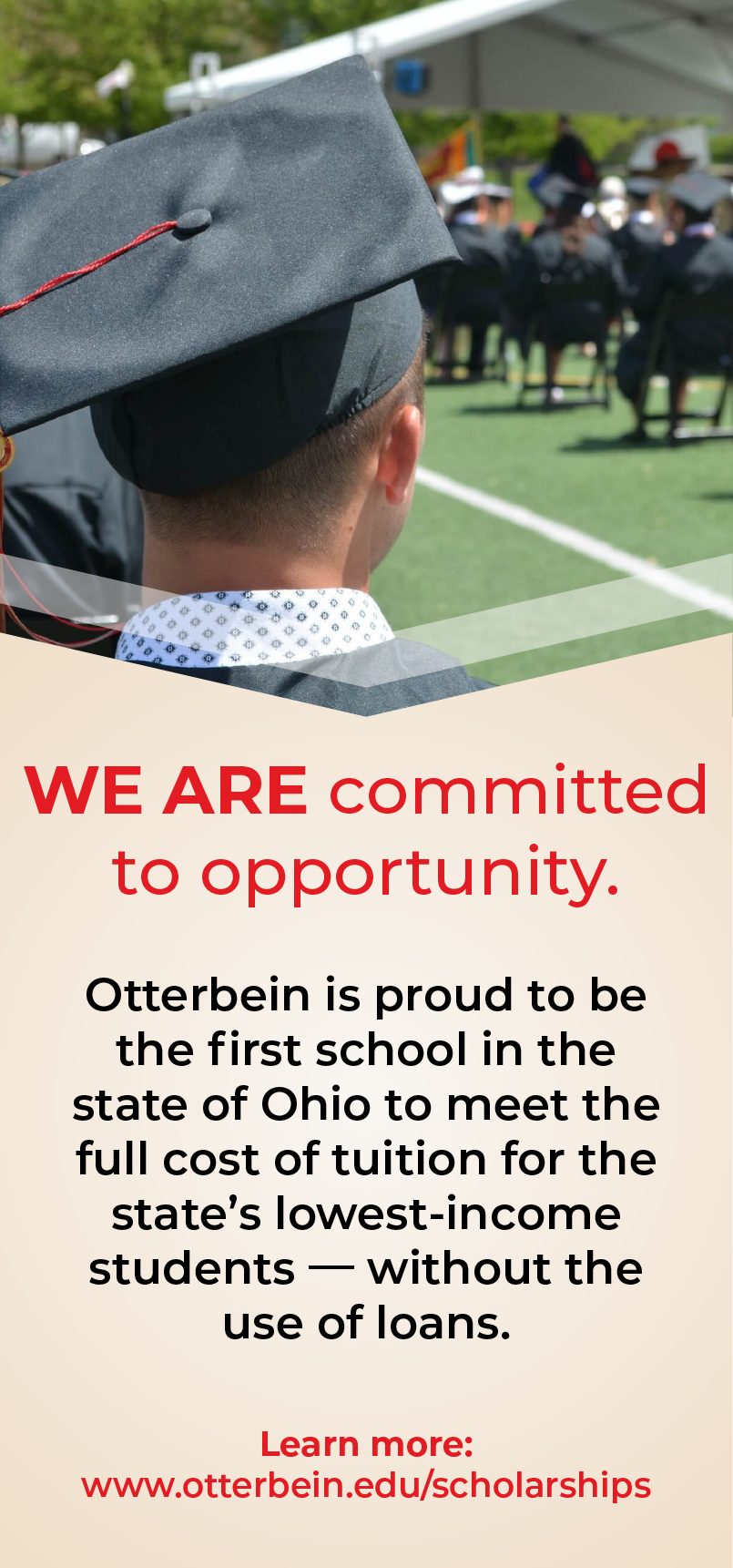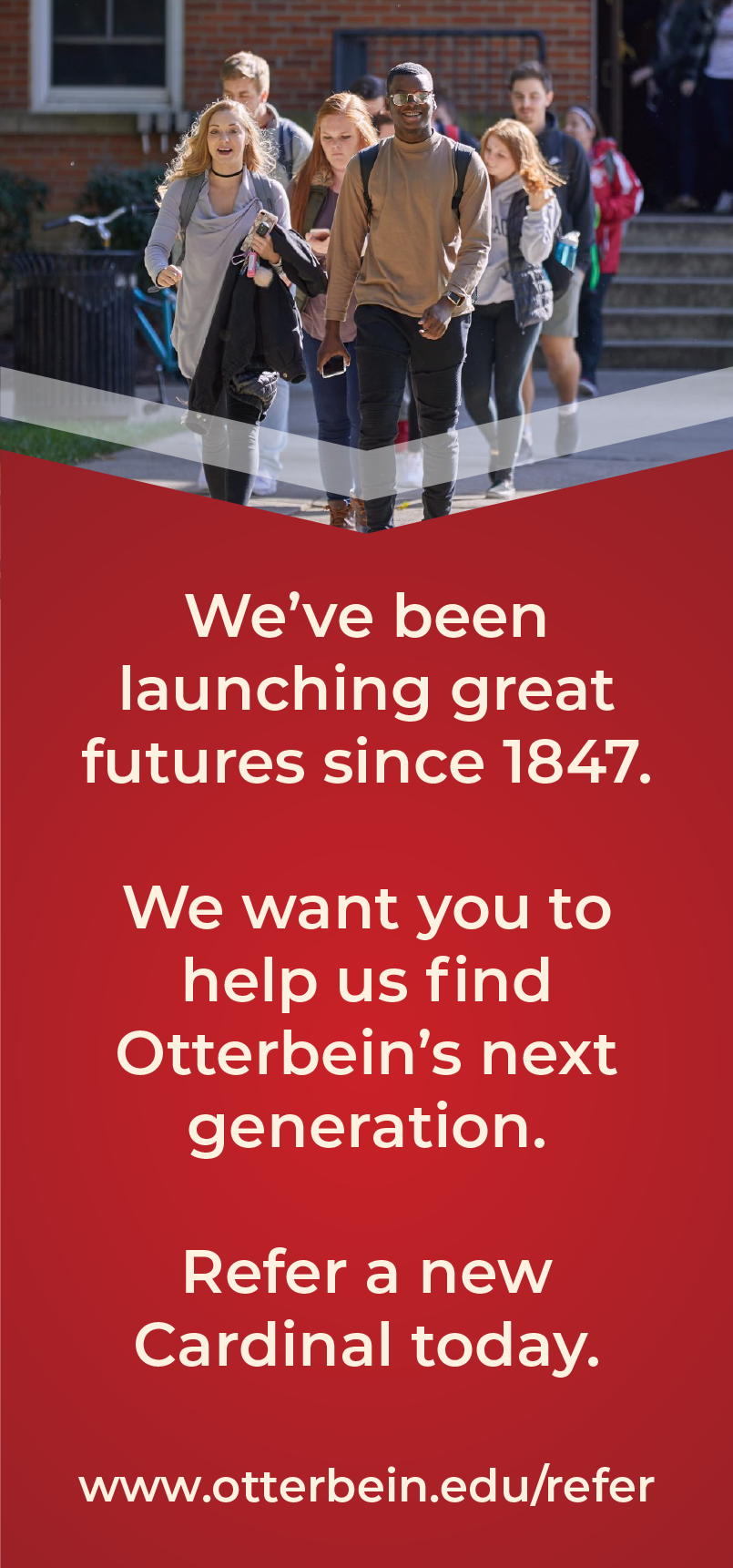How Otterbein plans to bring certainty during uncertain times
When Otterbein University found itself facing two crises spring semester, President John Comerford stepped up with strong leadership to overcome a myriad of challenges.
According to Comerford, higher education fosters a very collaborative environment. Leaders welcome buy-in, input and feedback as faculty and staff are highly educated individuals avid for involvement, independence and entrepreneurship. But a crisis demands decisions, clear direction and a top-down leadership style.
“In a crisis you need to move fast. There is no time to meet with a committee and take a vote, which is not the typical way you lead in higher education,” said Comerford. “The key during these situations is to be able to leverage the trust that, hopefully, you have built by being inclusive, honest and transparent so people know that decisions are made with the best possible intention for everyone.”
See more of the interview with President Comerford.
Leading in times of crisis 1
Leading in times of crisis 2
Leading in times of crisis 3
When the year began, no one could have imagined that a pandemic would define almost every aspect of our lives. Towers lanned on talking with President Comerford about the University’s new strategic priorities. Instead, we found ourselves in a global
health crisis that moved this conversation — along with classes, meetings and events — into a new virtual reality. What follows are insights about Otterbein leaders’ initial response to the COVID-19 crisis that kept learning at the forefront.
Right now, people everywhere are witnessing a catastrophe of a global scale. We have learned about how this novel coronavirus pandemic has destroyed jobs, ended lives, and affected the global supply chain. From the meatpacking industries to manufacturing, the economic impact of the pandemic has been overwhelming.
What is more, just gathering data about COVID-19 has been a colossal task. According to the Pew Research Center, the organization is “struggling to adapt to a new reality” after suspending face-to-face surveys internationally to avoid risking pollsters of contracting the novel coronavirus. Similarly, Otterbein University stopped in-person classes to protect the health of students, faculty and staff.
Overnight, the University found itself coping with two crises simultaneously — one caused by a network outage due to a cybersecurity incident and another involved sending students home when Ohio Governor Mike DeWine mandated universities teach online and work remotely, transforming Otterbein’s operation in days.
According to President Comerford, there is a contrast in leadership styles during normal times as opposed to exceptional ones. Typically, higher education fosters a very collaborative environment. Leaders welcome buy-in, input and feedback as faculty and staff are highly educated individuals avid for involvement, independence and entrepreneurship. On the contrary, a crisis demands decisions, clear direction, and a top-down leadership style.
“In a crisis you need to move fast. There is no time to meet with a committee and take a vote, which is not the typical way you lead in higher education,” said Comerford. “The key during these situations is to be able to leverage the trust that, hopefully, you have built by being inclusive, honest and transparent so people know that decisions are made with the best possible intention for everyone.”
Comerford immediately convened his leadership team, which has met almost daily since early March, to manage both the network outage and coronavirus crisis and provide direction and strong communication to all stakeholders.
Otterbein’s academic leadership also implemented smart decisions early on. Gathering insight from faculty, communicating often, collaborating with partners on-campus and being able to transition into a virtual environment helped students complete the spring semester from home.
“To support faculty as they worked to convert their classes to remote learning, the Center for Teaching and Learning offered hundreds of workshops and one-on-one
sessions, starting March 11 and continuing through the spring and summer terms. Although spring semester is over, faculty and the CTL continue to prepare for the future,” said Kathryn Plank, director, Center for Teaching and Learning and interim associate vice president for academic affairs and dean of university programs.
Plank said that creating resources for the faculty was very important as well. For instance, Associate Professor Jeff Smith produced two instructional videos and created other resources such as LibGuides, which are digital guides hosted on a platform managed by the Courtright Memorial Library staff. He was a critical partner to the Center for Teaching and Learning during this crisis as he supported the faculty by assessing their distinct levels of technological ability, meeting their needs and building their confidence. Even though Smith had to transition his own classes online, he spent 80% of his time making sure that he was helping his colleagues.
“Luckily, I had taught online before, so it wasn’t as large a leap as it might have been for other colleagues,” said Smith. “One of the greatest challenges was reminding colleagues how it was like when they were first learning how to teach earlier in their careers.”
PHOTOS BY ED SYGUDA AND AJ BROWN (FEATURED IMAGE)
The greatest challenge he said, is to deliver a unique Otterbein experience so students can enjoy a sense of normalcy during these turbulent times. “Education is not only about touching a shoulder, but it is all about reaching the heart and mind of a student, and you can do it via distance learning,” said Smith.
There is a sense of hope for the future. “Now we have a little more time and we can engage people to plan for our near future,” said Comerford. Otterbein’s summer term, delivered exclusively online, saw a 70% increase in undergraduate enrollment. Comerford also announced that Otterbein plans to welcome back students to
campus this fall.
“Traditional-age undergraduate students are still going to want to go to college. There is something about athletics, fraternities, sororities, residence halls, and campus activities that a traditional-age student is still going to want,” he said. Comerford believes that the care and focus on learning will guide Otterbein through the days ahead.



